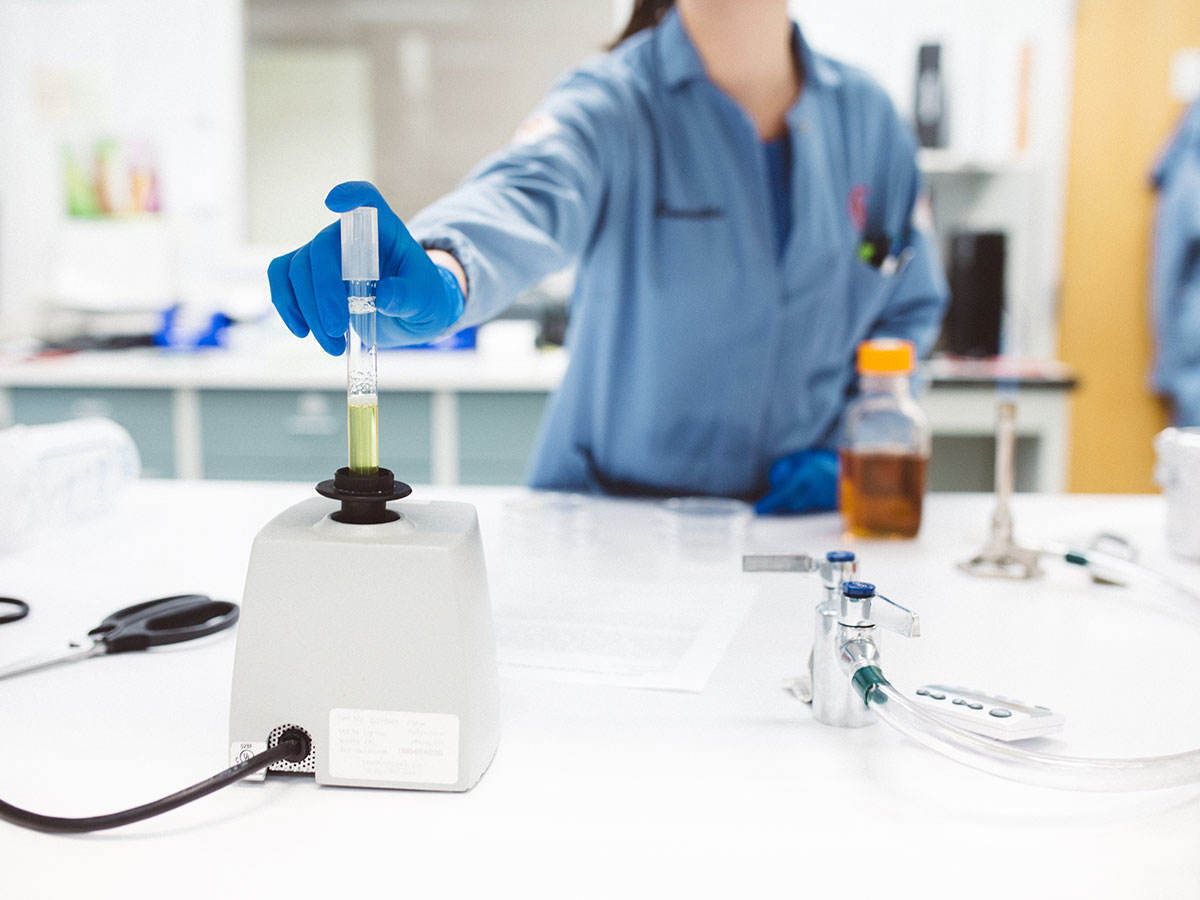IEC 61010 safety standard
The IEC 61010 standard addresses the safety of laboratory, inspection, and measurement equipment. This includes electrical equipment for measurement and control in laboratory use. Types of laboratory equipment covered by the IEC 61010 family of standards include:
- Test and measure equipment - Tests measure, indicate, or record electrical or non-electrical quantities
- Laboratory equipment - Measures, indicates, monitors, analyzes or prepares materials
- Bench top power supplies within test and measurement equipment
- Computing equipment - Part of the equipment standard or designed exclusively for the equipment
Hazards addressed by the IEC 61010 series of standards
Laboratory, inspection, and measurement equipment is not exempt from faults or failures. UL’s experts understand what potential hazards lie within a laboratory setting and know what to look for throughout the testing process. When examining equipment for possible hazards, some of their basic safety considerations include:
- Electric shock and burn
- Mechanical
- Spread of fire
- Excessive temperature
- Effects of fluids and fluid pressure
- Radiation - sound/ultrasound
- Liberated gases/chemical
These considerations serve as a baseline of potential hazards with laboratory equipment. As the testing proceeds, UL will continue to look for other items that may pose potential risks.
Specific laboratory equipment safety tests
UL’s experts have a deep understanding of the evolving standards landscape for healthcare applications. In order to keep your healthcare laboratory compliant, it is important to know the current regulations which apply to your equipment. UL can conduct numerous tests to keep your operation within standard guidelines. Many of the tests conducted within the IEC 61010 family of standards are:
Single fault condition tests:
- 4.4.1 General Fault Tests
- 4.4.2.2 Protective Impedance
- 4.4.2.3 Protective Conductor
- 4.4.2.4 Equipment for short term operation
- 4.4.2.5 Motors [New open one phase of multi-phase motor] (see also 14.2)
- 4.4.2.6 Capacitors
- 4.4.2.7 Mains Transformer (see also 14.6)
- 4.4.2.8 Outputs
- 4.4.2.9 Equipment with more than one supply
- 4.4.2.10 Cooling
- 4.4.2.11 Heating Devices
- 4.4.2.12 Insulation between circuits
- 4.4.2.13 Interlocks
- 4.4.2.14 Voltage Selectors
Type tests:
- 5.1.3 Input Test
- 5.3 Durability of Markings
- 6.3 Permissible Limits
- 6.5.2.4/
6.5.2.5 Protective Bonding - 6.5.2.6 Transformer Protective Bonding screen
- 6.5.4 Protective Impedance
- 6.6.1 Shorted Internal Circuits
- 6.6.2 External Circuit Capacitor Discharge
- 6.8 Voltage Test (Dielectric Withstand Test)
- 6.8.2 Humidity Conditioning
- 6.10.2.2 Cord Anchorage
- 6.10.3 Mains Circuit Capacitor Discharge
- 7.4 Stability Test
- 7.5.2 Strength of Handles
- 7.5.3 Loading Test
- 7.6 Wall Mounting
- 8.2.1 Static Test
- 8.2.2 Impact Test
- 8.3.1 Drop Test
- 8.3.2 Hand-Held Drop Test
- 9.4 Limited-Energy Circuit Test
- 10.1 – 10.4 Temperature Test
- 10.5.2 Resistance to heat of non-metallic enclosure
- 10.5.3 Resistance to heat of insulation material
- 11.2 Cleaning Test
- 11.3 Spillage Test
- 11.4 Overflow Test
- 11.6 Specially Protected Equipment
- 11.7.1 Maximum Pressure
- 11.7.2 Leakage From High Pressure
- 11.7.3 Leakage From Low Pressure
- 12.2 Ionizing Radiation
- 12.4 Microwave Radiation
- 12.5 Sonic and Ultrasonic Pressure
- 12.6 Laser Sources (IEC 60825-1)
- 14.3 Over-temperature Protection
- 14.5 Voltage-Mismatch Test
- 14.8 Transient Overvoltage Limiting Device Test
- 15.3 Interlock Reliability Testing
Keep your laboratory equipment IEC 61010 compliant
A UL Certification, CB Certificate, and Informative Test Report fully supports global regulatory needs using the harmonized IEC 61010 family of standards. Compliance is required by most authorities with jurisdiction. These include retailers, laboratory managers, healthcare facilities managers and code enforcement. A UL Certification can result in:
- Reduction in liability
- Global Market Access (in our CB Scheme scope)
- Evidence of meeting regulatory requirements
- CE marking support - 3rd party test data and supporting technical files
- Protection of health & commercial professionals
- In vitro diagnostic (IVD) support for FDA
Why UL
- We operate in more than 100 countries, and our reports and certifications are recognized and accepted around the world
- We have helped to set more than 1,600 standards defining safety, security, quality and sustainability
- We offer comprehensive testing and certification services, and our engineers work with you throughout the entire production lifecycle
Our engineers work with standards committees, such as Association for the Advancement of Medical Instrumentation, American National Standards Institute and government bodies.
